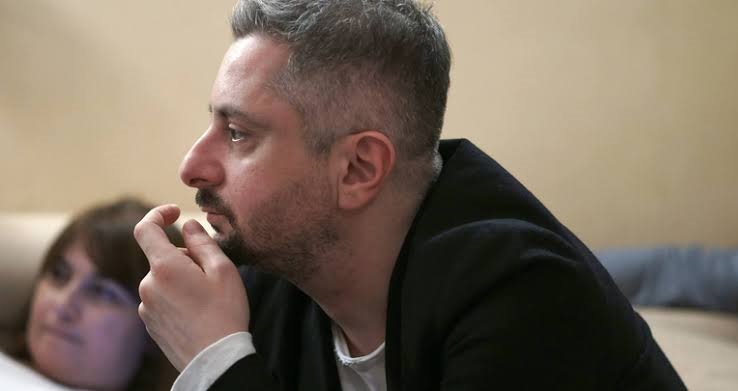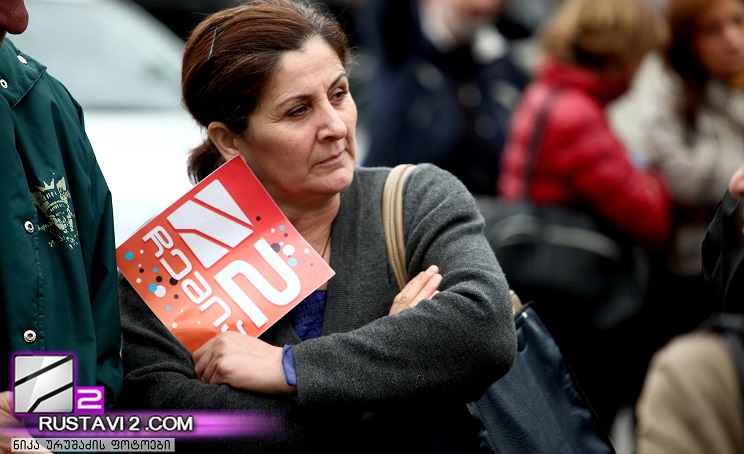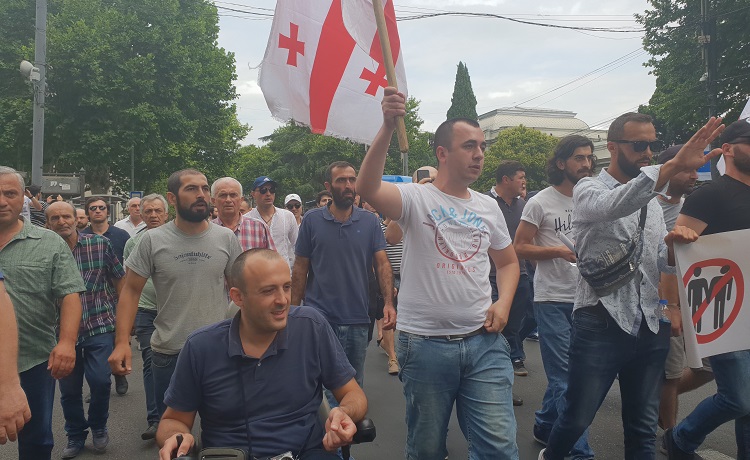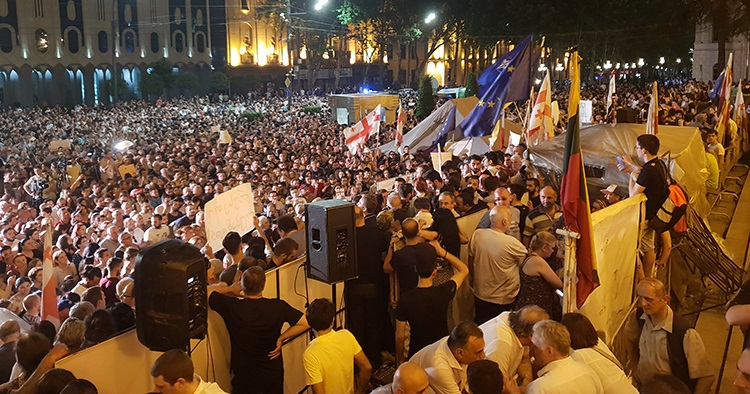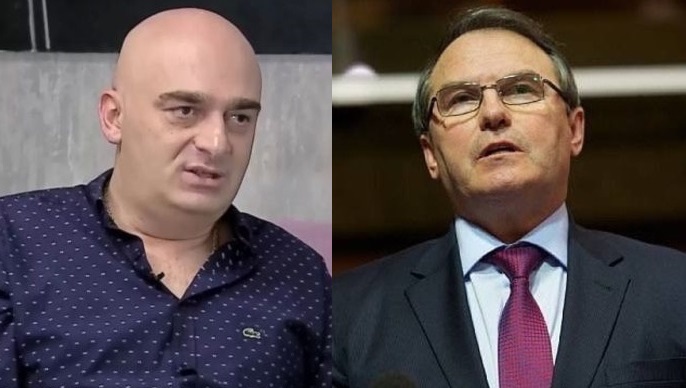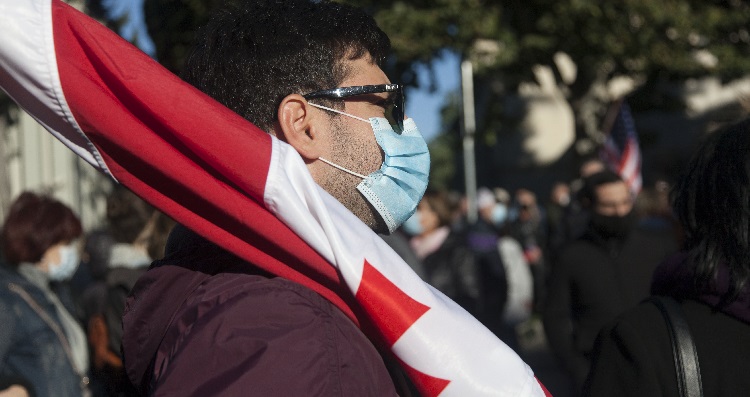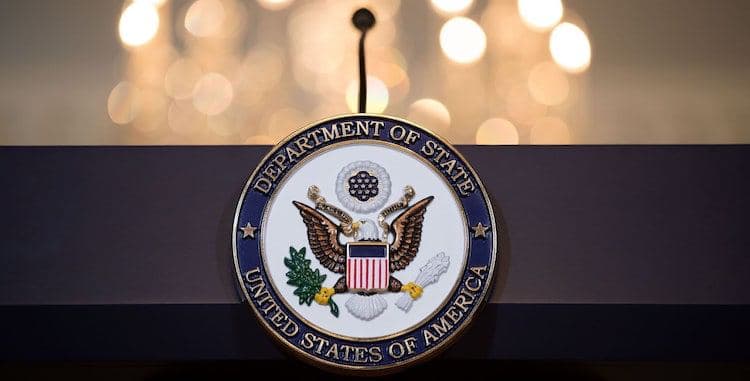Human Rights Watch 2020 report: June protests, labour rights, media, drug police, LGBT issues in focus
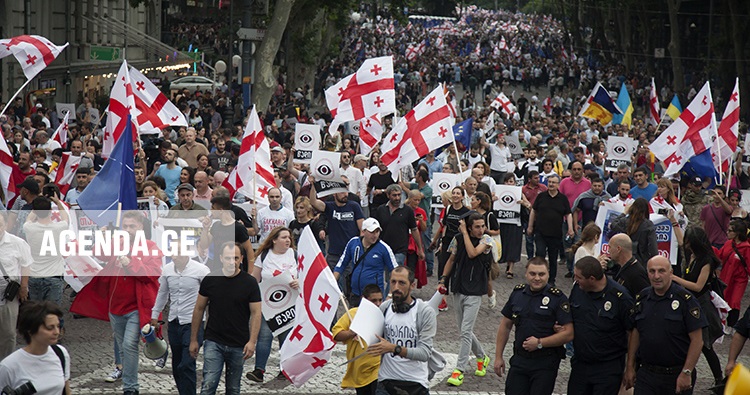
World Report 2020 is Human Rights Watch’s 30th annual review of human rights practices around the globe. The 652-page volume reviews human rights practices and trends in nearly 100 countries. Photo: Nino Alavidze/Agenda.ge.
The Human Rights Watch has released its World Report 2020, reflecting the developments in the world in 2019, including in Georgia.
The report reads that political tensions and sustained protests over electoral reforms marked 2019 in Georgia, drawing particular attention to labour rights, current drug policy, the rights of sexual minorities and the ‘lack of accountability for law enforcement abuses’.
The reports says that on the night of June 20, 2019, Georgian riot police fired rubber bullets and used tear gas against protesters outside the parliament building in Tbilisi.
Some protesters repeatedly tried to break through the police cordon, grabbing and damaging some riot gear. Otherwise the crowd was largely nonviolent. While riot police showed restraint initially, around midnight, without prior warning, they opened fire on the crowd with tear gas and rubber bullets, chasing and arresting people who had tried to gather.”
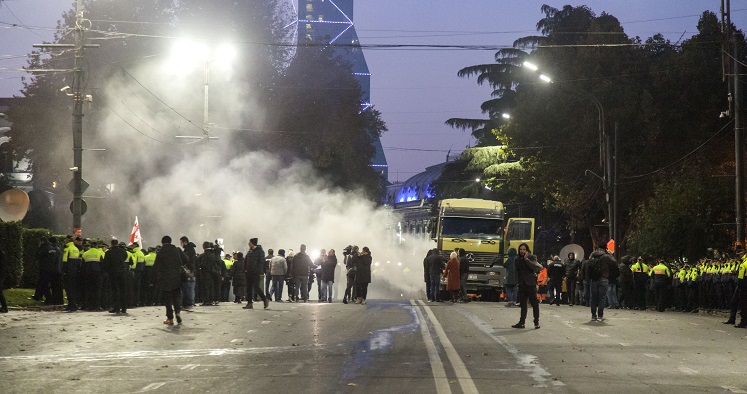 The report reads that the Georgian government used 'excessive force' to disperse a 'largely nonviolent protest' in June 2019. Photo: Nino Alavidze/Agenda.ge.
The report reads that the Georgian government used 'excessive force' to disperse a 'largely nonviolent protest' in June 2019. Photo: Nino Alavidze/Agenda.ge.
The reports stated that impunity for abuse by law enforcement officials remained a “persistent problem,” in Georgia.
Authorities twice postponed the launching of the State Inspector’s Office, created in 2018 to investigate abuses committed by law enforcement and other public officials, citing lack of financing. It became operational on November 1.”
Labor Rights
The report cites the Georgian Trade Union Confederation as saying that 36 workers died and 107 were injured in work-related accidents through October 2019.
Georgian labour law does not sufficiently regulate working hours, rest time, weekly breaks, and night work, and does not provide for government oversight of all labour conditions.”
 Human Rights Watch report says workers in some manganese mines in Georgia work 12-hour shifts underground, including at night, for 15 straight days, resulting in exhaustion and increasing the likelihood of workplace accidents and injuries. Photo: Georgian Trade Union Confederation.
Human Rights Watch report says workers in some manganese mines in Georgia work 12-hour shifts underground, including at night, for 15 straight days, resulting in exhaustion and increasing the likelihood of workplace accidents and injuries. Photo: Georgian Trade Union Confederation.
Freedom of Media
The report says that the European Court of Human Rights’ decision last year, finding no breach of fair trial guarantees in the ownership dispute over Rustavi 2 private broadcaster ‘shook Georgia’s media landscape’.
The move prompted almost the entire newsroom to quit, resulting in temporary suspension of news broadcasts.”
The report mentioned charges against the channel’s Director General Nika Gvaramia and the charges brought against Avtandil Tsereteli, father of the founder of TV Pirveli.
The prosecutor’s office alleged that Tsereteli assisted former TBC Bank Board Chair Mamuka Khazaradze and his deputy in ‘legalization of illicit income’ of US$ 17 million in 2008. Civil society groups criticized the move as another attempt at “exert[ing] pressure on the independent and critical broadcaster.”
Drug Policy
The report says that although the overall numbers of drug-related prosecutions continue to decline in Georgia, authorities maintained “harsh drug laws” that can be used to prosecute people for mere consumption (except for marijuana) or possession of drugs for personal use.
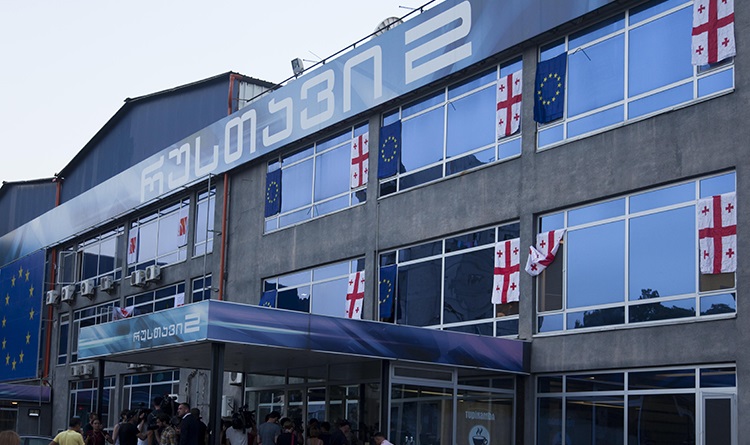 The European Court of Human Rights released its verdict on the Rustavi 2 private broadcaster’s ownership dispute on July 18, 2019. Photo: Nino Alavidze/Agenda.ge.
The European Court of Human Rights released its verdict on the Rustavi 2 private broadcaster’s ownership dispute on July 18, 2019. Photo: Nino Alavidze/Agenda.ge.
Sexual Orientation and Gender Identity
The report reviewed the process around Tbilisi Pride and the activities of those opposing the event, as well as the role of the Georgian Interior Ministry which said that the Tbilisi Pride events “could not be held outdoors, citing risks to people involved in the events.”
The indoor Pride events took place. On July 8 around 40 activists and LGBT supporters held a pride march outside the Interior Ministry.”
The report also covered the confrontation in November 2019, when “ultra-nationalist hate groups and their supporters organized protests against the screening of a Swedish-Georgian gay love-themed film, And Then We Danced, in Tbilisi and Batumi, harassing and at times attacking moviegoers.”
See the full report here.
 Tweet
Tweet  Share
Share

